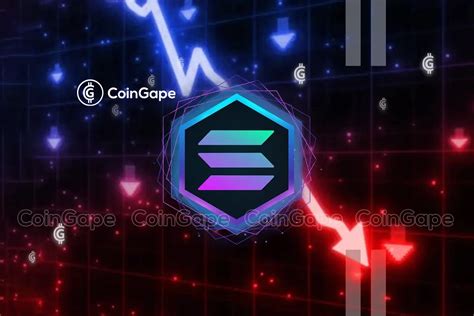Solana Development: Why This Decentralized Asset Suddenly Found Itself in Trouble
Solana, a popular decentralized application (dApp) built on the Solana Protocol blockchain platform, has been experiencing a series of issues that have been frustrating users and leaving them wondering why the asset has suddenly become unavailable to them. In this article, we’ll dive into what could be causing these issues and what it means for the future of Solana.
Issue: Card Verification Value (CVV) Lockup

One of the most common reasons for Solana downtime is a CVV lockup, also known as a Card Verification Code (CVC) lockup. This happens when a website or app that stores your account information tries to verify your card by requesting an additional security code associated with your debit or credit card. The problem is that this code can sometimes cause problems on the Solana network.
Why does Solana have a CVV lock?
There are several reasons why Solana may have a CVV lock:
- Network congestion: Increased usage of the Solana network can lead to temporary congestion, causing delays in transactions and in some cases blocking certain features or functionality.
- Huge demand for verification codes: The growing popularity of decentralized applications has led to an increase in CVC code requests, which can cause locks on the Solana network.
- Lack of infrastructure improvements: Until recently, Solana’s core infrastructure was not optimized for high transaction volumes. This led to temporary delays and locks.
Impacts: Why does this affect users?
When a CVV lock occurs, it can have serious consequences for users:
- Transaction delays: Users may experience delayed transactions or failed transfers.
- Account Restrictions: In extreme cases, a website or app may restrict access to certain features or services.
- Financial Loss: In some cases, users may lose money due to failed transaction requests.
The Future of Solana: What’s Next?
While these issues are temporary setbacks, they highlight the ongoing challenges facing Solana and its ecosystem. As Solana grows and matures, it will be crucial for developers, exchanges, and other stakeholders to work together to resolve these issues.
In the short term, users can expect:
- Temporary Fixes: Websites or apps may offer temporary workarounds to mitigate CVV blocks.
- Infrastructure Improvements
: The Solana team is actively working to improve its infrastructure to prevent future congestion and improve overall performance.
- Increased Focus on Security: As a result of these issues, it’s likely that there will be a greater focus on Solana’s security measures to prevent similar issues in the future.
Conclusion: Why does this matter?
The recent CVV lock incident highlights the importance of ongoing maintenance, updates, and collaboration between stakeholders. By working together, we can ensure that decentralized applications like Solana continue to thrive and provide a seamless experience for users.
As the Solana ecosystem continues to grow, it is important to stay up to date with its developments and any potential issues that may arise. This allows us to better anticipate and mitigate these issues, ensuring a smoother and more enjoyable experience for all stakeholders involved.

